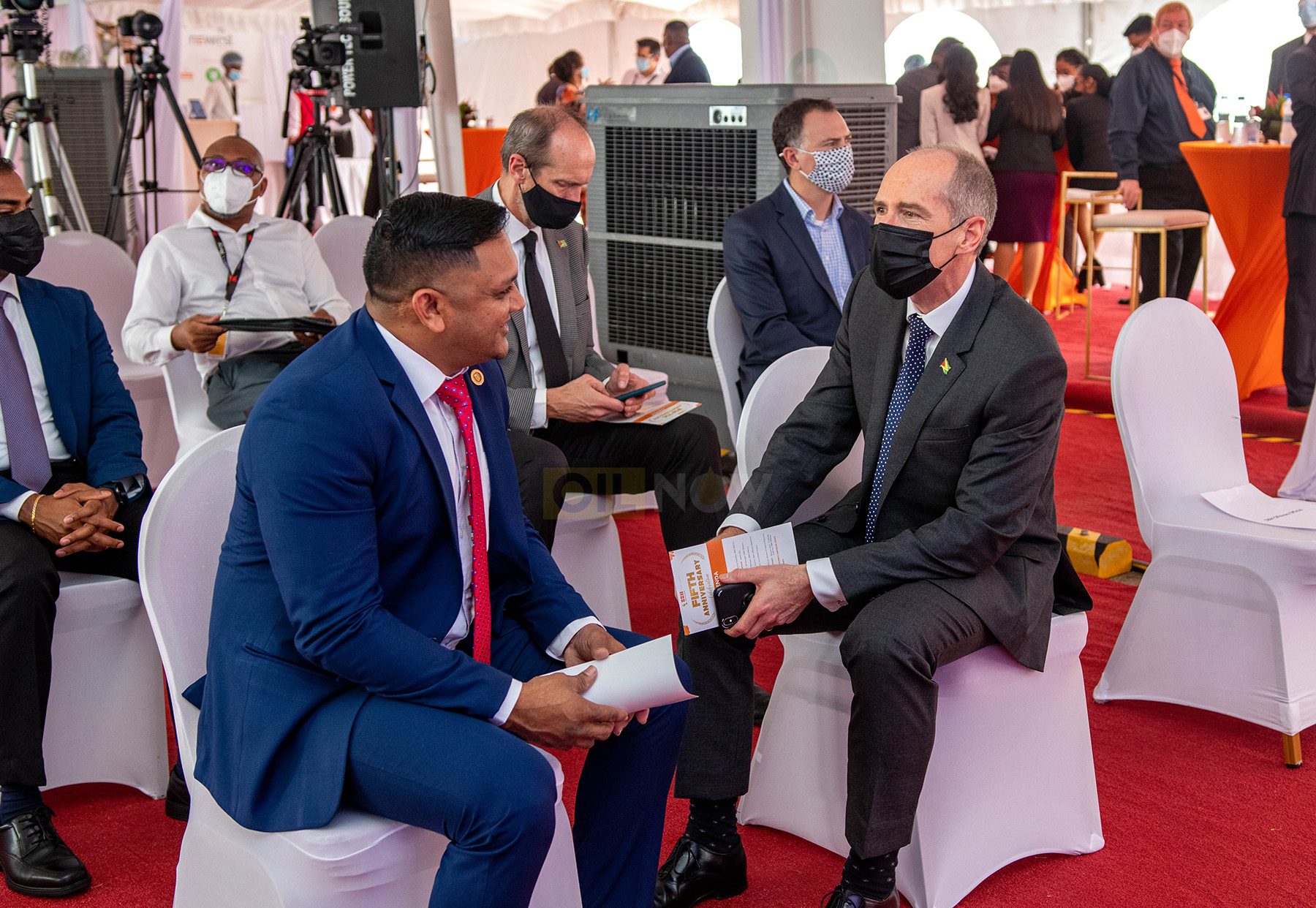The relationship between the Guyana government and the Stabroek Block co-venturers is yielding projects that will make Guyana the world’s largest per capita producer of oil. The arrangement is extremely rewarding for all parties. But Vice President Dr. Bharrat Jagdeo says it has not been easy.
There were key junctures in the relationship at which Guyana, Jagdeo explained, faced challenges when proposing dynamic new ventures.
“It’s not easy to work with oil and gas companies too,” he said. “[But] clearly, we recognise that these are world class resources in Guyana… and that the future has to be a partnership for the companies to make money as well as the people of the country to benefit from the development of these resources.”
When the government was preparing to legislate local content requirements, Dr. Jagdeo said license holders and their contractors claimed that oil and gas operations would be shut down. But the government stood its ground on the need to develop its local human resources.
“[Local content] didn’t shut down the industry,” the VP said, “and it’s driving more local business here.”
Government faced similar resistance when it revised Exxon’s environmental permits in response to excess flaring with claims that a tax of this nature is unusual for the company. Yet, there’s a tax now.
What is the lesson here? Jagdeo said that “not having done it elsewhere in the world, in Exxon’s global experience, over the last maybe many years, is not a reason for not doing it now in Guyana, if it’s necessary to promote sustainability – and we’re going to ensure that that happens.”
When the co-venturers were deciding on the tenets of the Gas-to-Energy project, Jagdeo said the government was told that “free gas” would distort the market. For the purpose of this project, the government and the Stabroek Block co-venturers will undertake a gas sales agreement. So, the gas is not actually free, but the VP’s use of the term “free gas” refers to the fact that the gas sales agreement is tailored to be the vehicle for the co-venturers to recover their capital costs, with no profit to be earned. Exxon’s Guyana President, Alistair Routledge, has said the company is motivated to support this project because of the benefits expected for the Guyanese people.
Jagdeo said the government often hears that its proposals have not been done before. In Guyana’s regard, he said a new thinking is required on the part of the companies, to meet the demands of the new era. Government found that the companies have been accommodative.
Guyana is superb example of what an aligned partnership can do – Exxon Upstream President
The companies have lauded the government for fostering a constructive relationship. So, despite its push for unique methods, the government has not lost the confidence of the investor community. It has been able to do this amidst constant waves of populist narratives in Guyanese media, calling for the government to hold their feet to the proverbial fire on critical matters. Government has said that it will not bend to these narratives, but that it will be guided by careful, long term strategies that keep Guyana on the path of being an investment haven.




